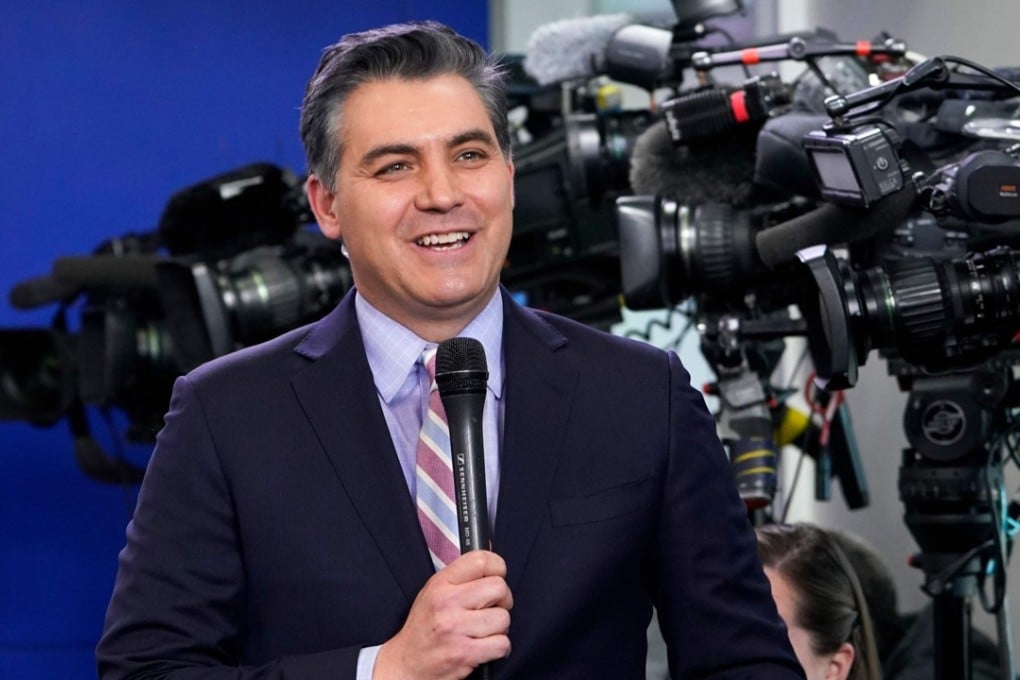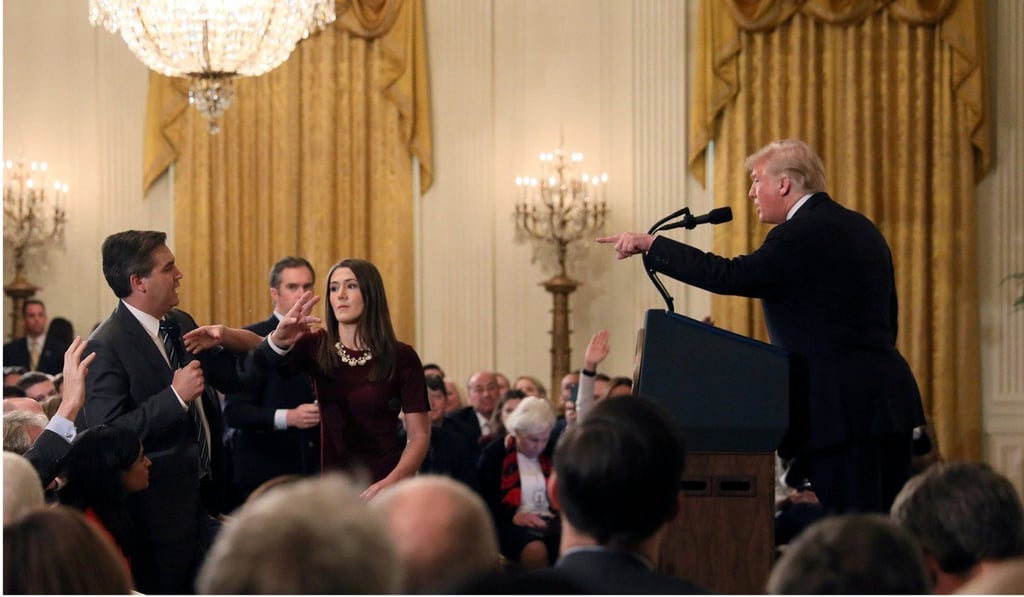CNN sues White House to try to regain access for banned reporter Jim Acosta
- Acosta’s pass was revoked after he argued with Donald Trump about a campaign advert and an aide tried to take the microphone from him

CNN sued the Trump administration on behalf of reporter Jim Acosta on Tuesday, asking a court to restore Acosta’s White House press pass after US President Donald Trump suspended it last week.
The unusual suit, an escalation of Trump’s long-running war of words with CNN, seeks a judge’s intervention after Trump banished Acosta from the White House grounds for an indefinite period after a brief altercation between Acosta and a White House press intern.

After a testy exchange between the president and the reporter, the unidentified press aide – an intern – went up to Acosta to take a microphone out of his hands. As a result, press secretary Sarah Sanders announced a few hours later that the White House had revoked Acosta’s “hard pass”, which enables reporters to enter and leave the grounds each day.
CNN filed suit in US District Court in Washington. “We have asked this court for an immediate restraining order requiring the pass be returned to Jim, and will seek permanent relief as part of this process,” the network said in a statement released Tuesday morning.
Legal experts say that the network’s chances of winning in court are favourable. The First Amendment protects journalists against arbitrary restrictions by government officials.